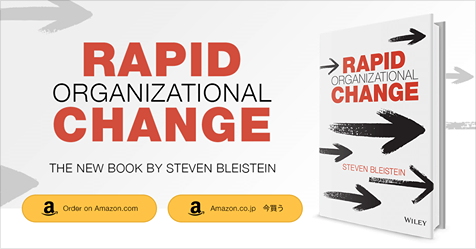[:en]A number of CEOs hesitate to go direct even though their distributor relationships have outlived their value. However, there is absolutely no reason to avoid bypassing your distributor no matter what you may have been told.
Some CEOs have told me how their Japanese staff warn them of dire consequences, such as losing customers or being blackballed in Japan. While theoretically a concern, I have never actually seen this happen in practice. Rather, it is more often the opposite. For example, Barilla Japan CEO, Antony Strianese, turned the company into a powerhouse after firing its long-time distributor.
Many of my clients have not only begun selling directly to end-buyers with success, but have even ended their distributor relationships entirely. Across industries in Japan, distributors add diminishing value in transactions if they ever added value at all. Buyers and sellers alike recognize this.
If you believe your distributor relationship has long-since exceeded its use-by date, you too should consider going direct. This is why:
- No one can sell your product better than you and your people. Distributor sales staff rarely have the technical knowledge of your product like you do, and tend to gravitate toward order-taking rather than proactive selling.
- Undercharging is your greatest cost, not the distributor’s margin. A distributor is rarely able to gauge how much buyers value your product, and tend to promote sales through lower price as opposed to charging appropriately by communicating value.
- There is no better market intelligence than speaking directly with your buyers frequently. You cannot rely on third-party reports, nor the hearsay of what customers have said to your distributor’s staff. They have they own agenda in what they communicate to you. Talking directly with your buyers frequently gives you the most detailed and rapid market intelligence that no money can buy, which you can use to make better strategic decisions for your business.
- Compelling value trumps all, no matter what doomsayers tell you. If you have a compelling product with distinct technology for which there are few or no substitutes, no buyer in Japan will care when you cut your distributor. Value to their business trumps all.
- End-buyers discern. Intermediaries commoditize. End buyers are attracted to unique value that provides an edge to their business. Intermediaries tend to treat all products in a category as commodities whether they recognize the value of yours or not.
- Buyers care about their business. Intermediaries care about their margins. Buyers care about how your product materially helps their primary business and impacts their bottom line. Intermediaries care only about sales quantity and their cut.
- Tradition is never sufficient justification for continuing anything. Whether your industry has a traditional distribution system or not, who cares? Value trumps all, and if that means bucking tradition, you can do so with success. Fast Retailing, Barilla Japan, Amazon, and Rakuten all did.
- Going direct forces business acumen. Intermediaries elicit accommodation. How do you want to develop the capabilities of your sales staff? When you sell directly to buyers, salespeople are forced to ask questions to understand the customers business and identify ways they can offer value. That’s how they sharpen business acumen. With distributors, sales staff are pushed on price, delivery time and stock availability, and do what they can to accommodate. Many salespeople are adept at accommodation, but is that really ideal for your business?
- Your product is your priority, but only a distributor’s option. Most distributors represent many businesses, but even if your distributor sells only your product, your business is not the only one they can consider representing. Your business simply does not have the same priority to them as to you.
- Among rivals, it is the one with the buyer relationship who wins. It is impossible to gauge value to your customer via a gatekeeper, and you should never rely on someone else to do your marketing for you. You have no control over how they represent you to buyers or if they even represent you at all. The most important question buyers ask are ones to which intermediaries can rarely adequately respond. The seller with the direct relationship with a buyer always has the upper hand whether your offer is competitive or not.
 [:ja]多くのCEOの方々は、仲介者を使う大した利点がなくなっていても、小売店を省いてしまうことに躊躇します。しかし、周りに反対する人がいる場合でも、小売店や代理店を通さずにビジネスをすることを避ける理由など、全くありません。
[:ja]多くのCEOの方々は、仲介者を使う大した利点がなくなっていても、小売店を省いてしまうことに躊躇します。しかし、周りに反対する人がいる場合でも、小売店や代理店を通さずにビジネスをすることを避ける理由など、全くありません。
私の周りのCEOの中には、もし代理店を通さなければ、顧客を失ったり、日本でつまはじきにされたりするといった、悲惨な状況を招いてしまうと周りの日本人スタッフから言われた人たちがいます。理論上、そういった心配は確かにあるかもしれませんが、そのようなことが実際に起こったなどということは一度も耳にしたことはありません。むしろその逆の方が多いと思います。例えばバリラジャパンのCEOであるアントニー・ストリアネーゼ氏は、昔からの小売店を首にした結果、会社の業績を大きく伸ばすことに成功しました。
私のクライアントの多くは、消費者にうまく直接販売をするようになっただけではなく、小売店との関係さえきっぱり終わらせてしまいました。日本では業種に関わらず、小売店の取引における付加価値はどんどん減っており、価値が最初から全然存在しなかったことさえあるようです。これは売り手も買い手の方もわかっていることでもあります。
あなたも、取引をしている小売店との関係の賞味期限がとうに切れてしまっていると思っているのであれば、消費者への直接販売を考えるべきでしょう。以下がその理由です。
- あなたやあなたの社員ほど、自社の製品を上手に販売できる人はいない。大抵の場合、小売店の営業スタッフの商品の技術的知識はあなたの知識ほどではなく、積極的な営業よりは、注文をとる、という態度になりがちです。
- 一番のコストは小売店のマージンではなく、低すぎる値段設定。 小売店には、あなたの商品が消費者にとってどれだけ価値があるかということをうまく判断することがなかなかできず、価値を伝えることで妥当な値をつける代わりに、値段を下げることで販売を促進しようとする傾向があります。
- 頻繁に直接購買者から話を聞くことが、市場情報を得る最良の方法である。他社が作ったレポートや、小売店のスタッフが顧客から聞いたことのまた聞きなどは、あてになりません。彼らがあなたに情報を伝える時は、彼らなりの目論見があった上でそうするわけですから。顧客と直接話すことにより、詳細、かつ金銭を払うことだけでは入手できないような迅速な市場情報を得ることがしばしば可能となり、結果、ビジネスのためにより良い戦略的決定を下すことに役立つのです。
- 周りの悲観論者がどのようなことを言おうとも、魅力的な価値は他の何にも勝る。もしあなたの会社がユニークな技術を使い、代替品が殆ど、或いは全くないようなユニークな製品を提供しているのなら、あなたが現在使っている小売店を首にしようがしまいが、消費者はそのようなことは気にしません。彼らは自分たちのビジネスのためになる価値を最重視するのです。
- 最終消費者は違いを区別し、仲介人は日用品化する。最終消費者は自分たちのビジネスの為になるユニークな価値に惹きつけられます。一方、仲介人の方々は、あなたの商品に価値を見出しても見出さなくでも、全ての商品を日用品として扱います。
- バイヤーは自分のビジネスが大切だが、仲介人は自分の利益を大切にする。バイヤーはあなたの商品が自分のメインのビジネスにどう役立ち、利益にどのような影響を与えるかを気にします。一方、仲介人が気にかけるのは、売上量と自分たちの取り分です。
- 伝統だからという理由だけで物事を続けるのは、どのような場合でも十分な理由にはならない。あなたの業界で伝統的な小売システムが存在するからといって、だから何だと言うのでしょう。何よりも大切なものは価値であり、そのために伝統を崩したければ、うまくやることは可能です。ファーストリテイリング、バリラジャパン、アマゾン、楽天といった企業は、それを成し遂げた良い例です。
- 直接販売を行うことで、ビジネスの正確さが必要となる。一方仲介業者を使えば、適当なやり方が助長される。自分の営業スタッフの能力を向上させたい場合、どのようになさりたいですか。消費者に直接販売を行う場合、営業スタッフは、顧客をより良く理解し、どのようにすれば価値を提供できるのかを見つけるために、いろいろ質問をすることを余儀なくされます。そうして彼らはビジネスをちゃんと行うことを覚えていくのです。しかし小売店を使う場合は、営業スタッフは値段、配達時間、在庫などのリクエストを受け、できるだけのことをして対応します。つまり多くの営業スタッフは、リクエストに答えることには熟練しているのですが、本当にそれがあなたのビジネスにとって最良と言えるでしょうか。
- あなたにとって自社の商品は一番大切だが、仲介業者にとっては、多くの商品のひとつに過ぎない。殆どの仲介業者は多くのビジネスの商品を取り扱っています。しかし、もし今はあなたの会社の商品のみを扱う仲介業者の場合でも、他のビジネスとの取引を始める可能性はあるのです。つまり彼らにとってのあなたのビジネスの優先順位は、あなたほどのものではないのです。
- 競合企業がひしめき合う中では、消費者との関係がしっかりしている企業が生き残る。仲介者を通して顧客への価値を判断することは不可能です。また、マーケティングを自分の代わりに他人にすっかりまかせきってしまうことも避けるべきです。そのようなことをすれば、顧客の目に自社をどう見せるかをコントロールすることができなくなりますし、顧客に対するマーケティングがまるで行われていない状況さえ招きかねません。顧客が寄せる質問の中でも一番大切なものは、大抵仲介者には上手に答えられないようなものです。顧客と直接の関係を持っているビジネスは、その商品の値段が他社に負けないものであろうがなかろうが、常に優位にあるのです。
 [:]
[:]


